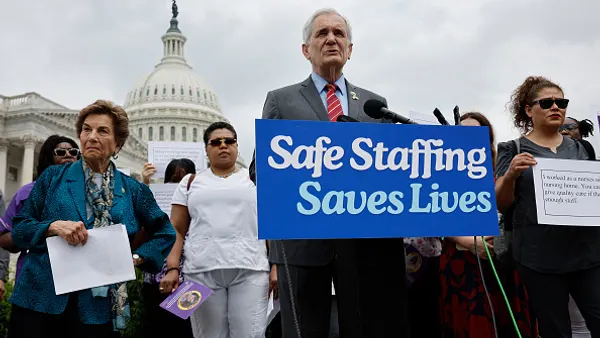Dive Brief:
- Employers have instituted more flexible and frequent leave allowances in response to the pandemic, according to Mercer’s Survey on Absence and Disability Management. Among the notable trends, 1 in 10 survey respondents now include Juneteenth as a paid company holiday; 61% of respondents offer paid parental leave for birth parents, up from 40% in 2018, while 60% offered paid leave to non-birth parents, up from 41% in 2018. Twenty-percent of respondents offer unlimited paid time off to at least some employees — mainly exempt workers — compared to 14% in 2018.
- Respondents also reported that compliance with state and local leave requirements has gotten more challenging during the pandemic; 46% said they hired a third party to monitor and help comply with those rules and 23% established a leave policy expected to exceed state and local laws to reduce the administrative burden. More than half of respondents supported the concept of a voluntary federal minimum standard for paid leave.
- Mercer engaged more than 400 employers for its survey. It will release the complete results in July.
Dive Insight:
The pandemic has caused a rapid evolution in many workplace policies, from remote and hybrid work to mental health assistance to free training and education benefits. Paid leave is no exception, the Mercer survey results show. Employers have seen that companies can continue to function well — even thrive — when employees have wide latitude to balance their personal lives and better manage their health and wellness.
More employers offering paid time off for Juneteenth and for parental care (including adoption leave) also demonstrates employers' increased interest in creating an inclusive workplace. Many companies were ahead of the federal government in making Juneteenth a paid day off, noting the importance of the day to their Black employees and generally as a time of reflection and solidarity for their entire employee base. The past year has also brought attention to workers' struggles with child care, with women bearing the brunt of the burden.
It's likely employers' growing embrace of policies like unlimited paid leave is further prompted by a need to attract and retain talent in a worker's market. Close to 1 in 3 employees who responded to a recent survey by Robert Half said they had experienced a "shift in perspective due to the pandemic," and employees have repeatedly asserted their preference for continued hybrid or remote work in surveys over the past year. Unlimited paid time off is one more policy employers can use to show workers they provide a flexible and competitive work environment.















